Find the treatment you need
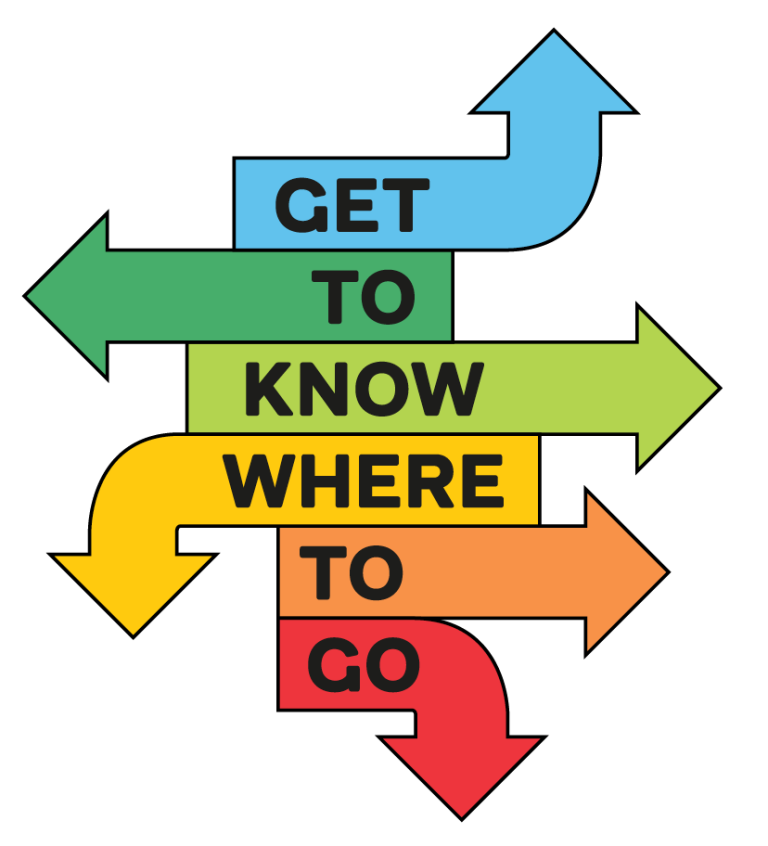
When you use the right NHS service, you get the right treatment sooner.
The first thing you should know is which service you should use for your symptoms.
This booklet shows the range of NHS services available to you and your family. Keep it handy, so when you’re not feeling well, or need treatment straight away, you know where to go.
Self-care
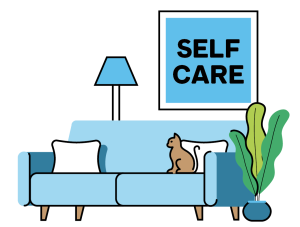
Many illnesses and minor injuries don’t always need a doctor or a nurse (or any other health professional).
Sometimes rest, lots of water and over-
the-counter medicines (available at supermarkets or your local pharmacy or chemist) can help your recovery at home.
Including for:
- Coughs, colds and sore throats
- Sprains or strains
- Sinusitis
- Earache
- Constipation
- Headache
- Small cuts
For advice on treating a range of minor illnesses and injuries at home, go to nhs.uk.
NHS 111
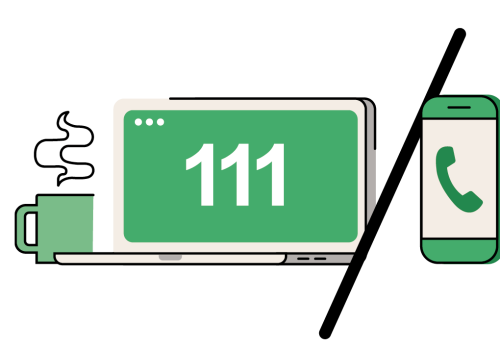
If you’re not sure what to do or where to go, go to 111.nhs.uk. It’s available 24/7, 365 days a year.
How NHS 111 online works
If you visit 111.nhs.uk, you’ll be asked to enter your age, sex, postcode and main symptom.
You are then asked a series of questions about your health problem.
You can:
find out how to get the right healthcare in your area, including whether you need to see a GP or seek urgent care get advice on self-care
111 online is a fast and convenient service for people who want to access 111 digitally.
Mental health support
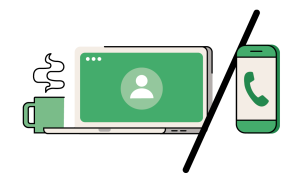
If you’re feeling low, anxious, stressed or overwhelmed there are lots of things you can do to lift your mood.
Try taking a walk, talking to a family member or friend or doing something relaxing like reading a book or listening to music. However, there may be times when you may need a bit of extra help. Remember, it’s OK not to be OK.
Services you can self-refer to:
Find out about the range of mental health and wellbeing support services in Greater Manchester that you can self-refer to. There’s information on this page for children and young people and adults. To find out more visit: https://hub.gmintegratedcare.org.uk/mental-health/mental-health-and-wellbeing-support-in-greater-manchester-that-you-can-self-refer-to/
To help your mental health and wellbeing, you can access self-help advice and support, for free:
SilverCloud
SilverCloud is a confidential and secure series of programmes to help ease stress, sleep better or build resilience.
To find out more, visit http://gm.silvercloudhealth.com/signup
Living Life to the Full
Living Life to the Full gives you instant access to courses that can help improve low mood, overcome stress, sleep better and build confidence. Available in 18 languages.
To find out more, visit http://llttfgm.llttf4.com/
Kooth
You can access safe and anonymous professional support online 24/7 by searching kooth.com for ages 10 to 25 There are no waiting lists and no referral is needed.
To find out more, visit http://kooth.com/
Qwell
For ages 26 and over, qwell.io is there for you to access safe and anonymous professional support online 24/7. There are no waiting lists and no referral is needed.
To find out more, visit https://www.qwell.io/
Manchester Bereavement Service
The Greater Manchester Bereavement Service is available for anyone who has been bereaved or affected by a death by whatever cause, no matter how long ago.
To find out more, call 0161 983 0902, or visit https://greater-manchester-bereavement-service.org.uk/
Shining a Light on Suicide
Shining a Light on Suicide is there for you, whether you’re feeling suicidal, worried someone else is or have lost someone to suicide. Whatever you’re going through, you can get the advice and support you need.
To find out more, visit https://shiningalightonsuicide.org.uk/
You can contact your GP practice and let them know how you’re feeling. It may be tough to begin with, but your GP can refer you for counselling and other talking therapies that can really help.
If you need mental health advice and support urgently, there are freephone 24/7 crisis helplines for all areas of Greater Manchester.
Bolton, Manchester, Salford, Trafford and Wigan call 0800 953 0285
Bury, Heywood, Middleton and Rochdale, Oldham, Stockport, and Tameside and Glossop call 0800 014 9995
If it’s an emergency and you’re worried you can’t keep yourself safe, go to your nearest A&E or call 999 if you can’t make it to a hospital.
For more details of mental health support where you live, visit our mental health support site.
https://hub.gmintegratedcare.org.uk/mental-health/in-your-area/
Pharmacy (Chemist)
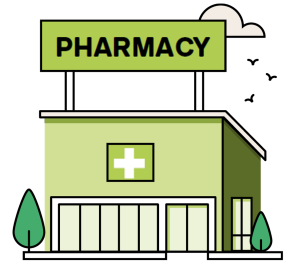
Pharmacists (or chemists) are healthcare professionals who can give you expert advice on treating minor illnesses and injuries. They can also recommend over-the-counter medicines.
Pharmacists can help with:
- Coughs, colds and sore throats
- Tummy upsets
- Aches and pains
- Earache
- Skin rashes
- Baby teething
- Nappy rash
- Emergency contraception (not provided by all pharmacies)
- Cystitis – 1-3 days symptomatic
You don’t need an appointment to see a pharmacist, and many are open late and at weekends.
Most have a consultation room so you can talk to them in private. If it’s needed, they’ll recommend seeing your GP. They can also help with questions about medication and make sure you’re taking it correctly.
To find your nearest pharmacy and opening hours, go to nhs.uk/find-a-pharmacy
Dental care
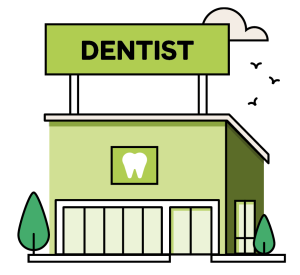
If you have pain in your mouth, teeth or gums, you will need to contact a dentist – your GP practice won’t be able to help.
Contact your regular dentist, if you have one. If they’re closed, or you do not have a regular dentist, call the Greater Manchester Urgent Dental Care Service on: 0333 332 3800
Please be aware that this service is very busy so you may need to wait, and they cannot provide routine check-ups.
The service is available from 8am to 10pm every day, including weekends and bank holidays. When you call, you will be assessed by a healthcare professional who can provide self-care advice or book a face-to-face appointment, if needed.
You can access this service in a number of locations across Greater Manchester. Choose the one that is most convenient for you, but it’s unlikely to be your regular dental practice.
Did you know, patients are not registered with a dentist in the same way as they are with a GP. So if you need a check-up or dental treatment, you can go to a practice outside your local community.
To find a dental practice, go to nhs.uk/service-search/find-a-dentist
Optician
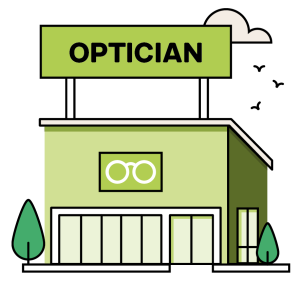
You’ll find a number of different eyecare professionals at your local opticians (also known as optometrists).
They are all eye experts and are there to help keep your eyes healthy. They can also make sure you have the right glasses or contact lenses, if you need them.
You should have an eye test at least every two years, even if you don’t wear glasses. An eye test can help to spot problems or conditions like glaucoma or cataracts earlier.
Greater Manchester’s Urgent Eyecare Service

This service is suitable for patients experiencing a range of recently occurring conditions such as a sudden loss of vision, red or painful eyes or eyelids, flashes and floaters or a foreign body in the eye.
The service is available to anyone registered with a Greater Manchester GP practice and aims to deliver quick community-based assessments and treatment from local optician teams and can avoid a GP visit or attending a hospital A&E department.
The service is available throughout the week and, in some places, at weekends and evenings. Always call first as this is not a walk-in service. https://primaryeyecare.co.uk/find-a-practice/
GP Practice
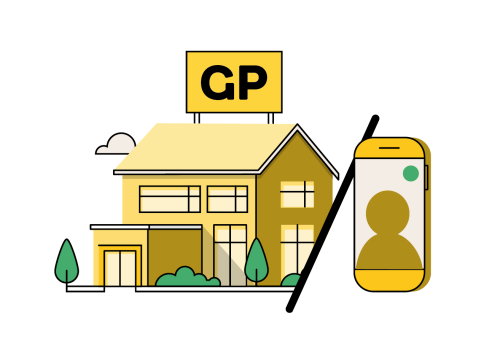
Some illnesses or injuries can be difficult to deal with at home. Or you may feel you need a bit of help after a few days.
You can see other healthcare professionals at your GP practice, not just doctors or nurses.
Some practices will ask you to fill in a form online. This helps them to see people who are very unwell, and makes sure you see the best person for your needs.
Appointments may be online, on the phone or face-to-face and can be made at evenings and weekends.
Local GP practices work together to offer evening and weekend appointments. This means you can see a GP, nurse or other health professional at a time that’s convenient for you. Ask your GP practice for details.
Your GP practice can help with lots of different health issues, including:
- Persistent cough (3 weeks or more)
- Ongoing sore throat (1 week or more)
- Continuing earache (3 days or more)
- Headaches that keep coming back
- Cystitis (water infection) that won’t go away (3 days or more)
- A breast lump
- Blood in your wee or poo
- Worries about the menopause
- Feeling low or anxious
- Ongoing or long-term conditions
The GP out-of-hours service is there if you need urgent medical care when your GP practice is closed. For details on how to access the service, call your practice and listen to the recorded message.
When you call the service, you may be given advice over the phone or a face-to-face appointment.
Everyone in Greater Manchester can and should register with a GP practice, regardless of housing or immigration status.
Find your nearest GP practice at nhs.uk/service-search/find-a-gp
Urgent care
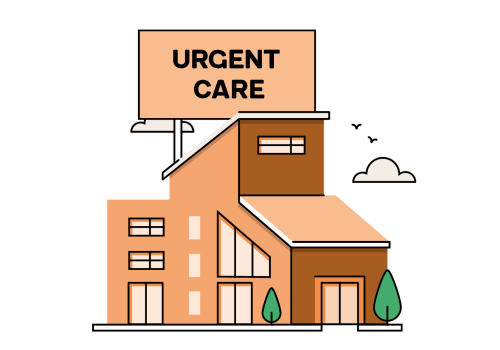
Urgent treatment centres or walk-in centres are there if you need urgent medical help that’s not serious or life-threatening.
In areas where there is no urgent treatment centre or walk-in centre, there are still local health services there to help.
Conditions that can be treated at an urgent treatment centre or walk-in centre include:
- Sprains and strains
- Suspected broken limbs
- Minor head injuries
- Cuts and grazes
- Bites and stings
- Minor scalds and burns
- Ear and throat infections
- Skin infections and rashes
- Eye problems
- High temperature in children and adults
- Stomach pain
- Emergency contraception
If you’re not sure where to go, or to find out if there’s an urgent treatment or walk-in centre in your area, visit 111.nhs.uk
A&E / 999
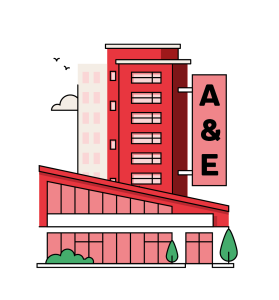
A&E departments (also known as emergency departments or casualty) are there for serious or life-threatening health conditions only.
These conditions include:
- Loss of consciousness
- Sudden confused state
- Fits that are not stopping
- Chest pain
- Breathing difficulties
- Severe bleeding that won’t stop
- Severe allergic reactions (anaphylaxis)
- Severe burns or scalds
- Major trauma such as a road traffic accident
- Feelings of self-harm or suicide
Call 999 if it is an emergency and someone’s life is at risk. This may include:
- A suspected heart attack or stroke
- An overdose
- A serious injury such as a road traffic accident, a serious head injury, a fall from height or a stabbing or shooting
The 999 call advisor will ask you some questions and decide if an ambulance is needed.
All patients are assessed when they arrive at A&E (including those who have come by ambulance) and people with the most serious conditions will be seen first.
If you do need to go to A&E, they will give you an arrival time, which may mean a shorter wait.
If you’re not sure where to go, visit 111.nhs.uk online
While you wait
While You Wait is a resource designed to support people with their physical and mental wellbeing while they wait for NHS treatment.
The website has an accessibility toolbar which lets visitors translate the content into over 100 languages, hear the text out loud, use reading aids and change text style.
Search whileyouwait.org.uk
If you want to save a copy of this advice on your phone or computer to refer back to later or share with friends and family, download it now.
https://gmintegratedcare.org.uk/wp-content/uploads/2022/12/nhs-winter-get-to-know-where-to-go.pdf
